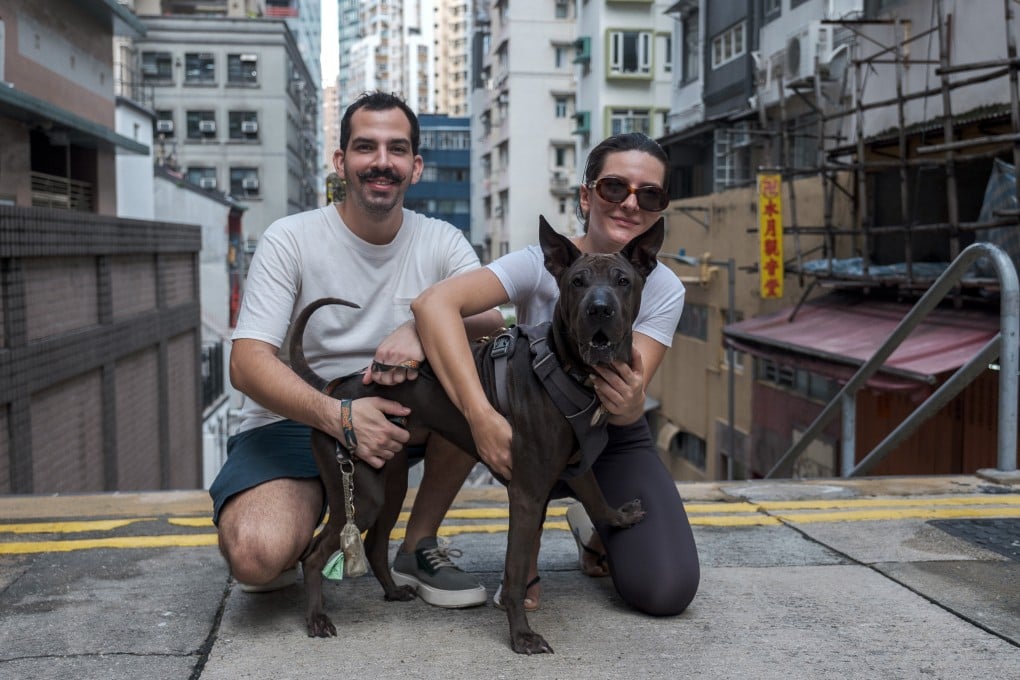Up fur debate: will allowing pets in Hong Kong offices create better workplaces?
- While firms in North America and Europe began adopting pet-friendly workplaces after ownership boomed during pandemic, Hong Kong has yet to largely follow suit
- SPCA says allowing dogs in workplace can help employee retention and job satisfaction, but not all environments are suitable

Ali MacDonald calls himself “lucky” for having an office in Hong Kong that is so welcoming to his seven-year-old dog, Peggy.
The 32-year-old from Scotland, who works in whiskey sales and events, said he took Peggy to the office three times a week – a rare perk in a city that lags behind many of its counterparts for dog-friendly policies.
While he acknowledges the emotional benefits he and his dog get from being around each other all day, what MacDonald notices most is the reaction from others in the office.

“They love her,” he said. “It just changes the whole atmosphere in a positive way.”
Dog ownership has become increasingly popular in Hong Kong over the past decade. A survey by the Census and Statistics Department from 2019 found that more than 145,000 households had dogs.
Despite ownership surging, pet-friendly policies have been slow to evolve.
In June, the Leisure and Culture Services Department opened 54 more parks to pets, bringing the total to more than 170.